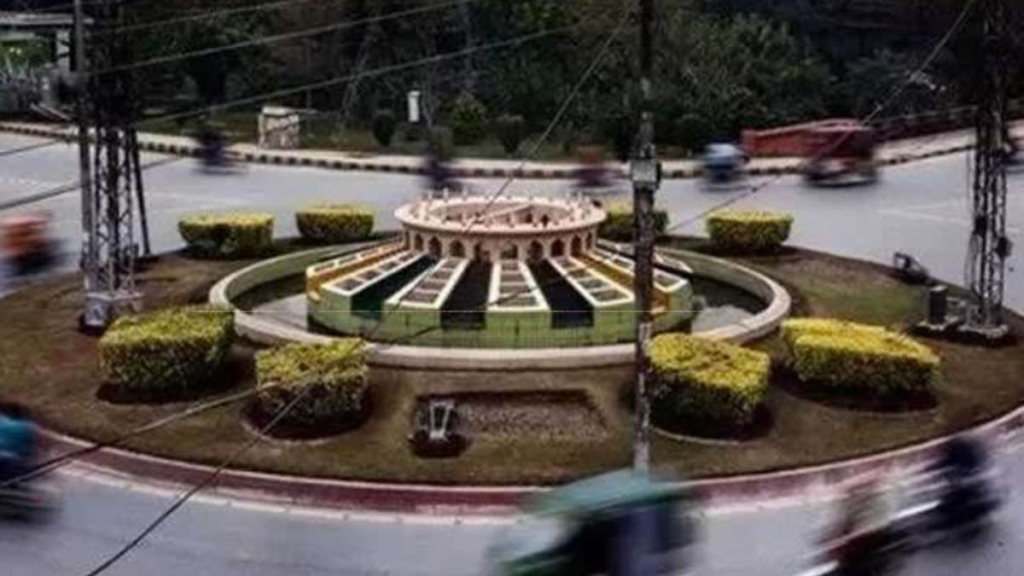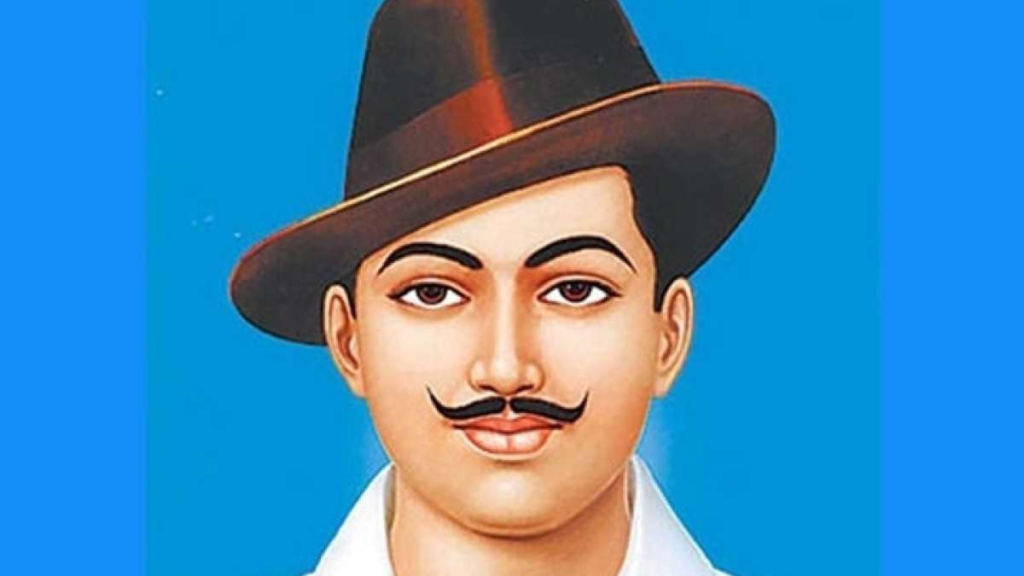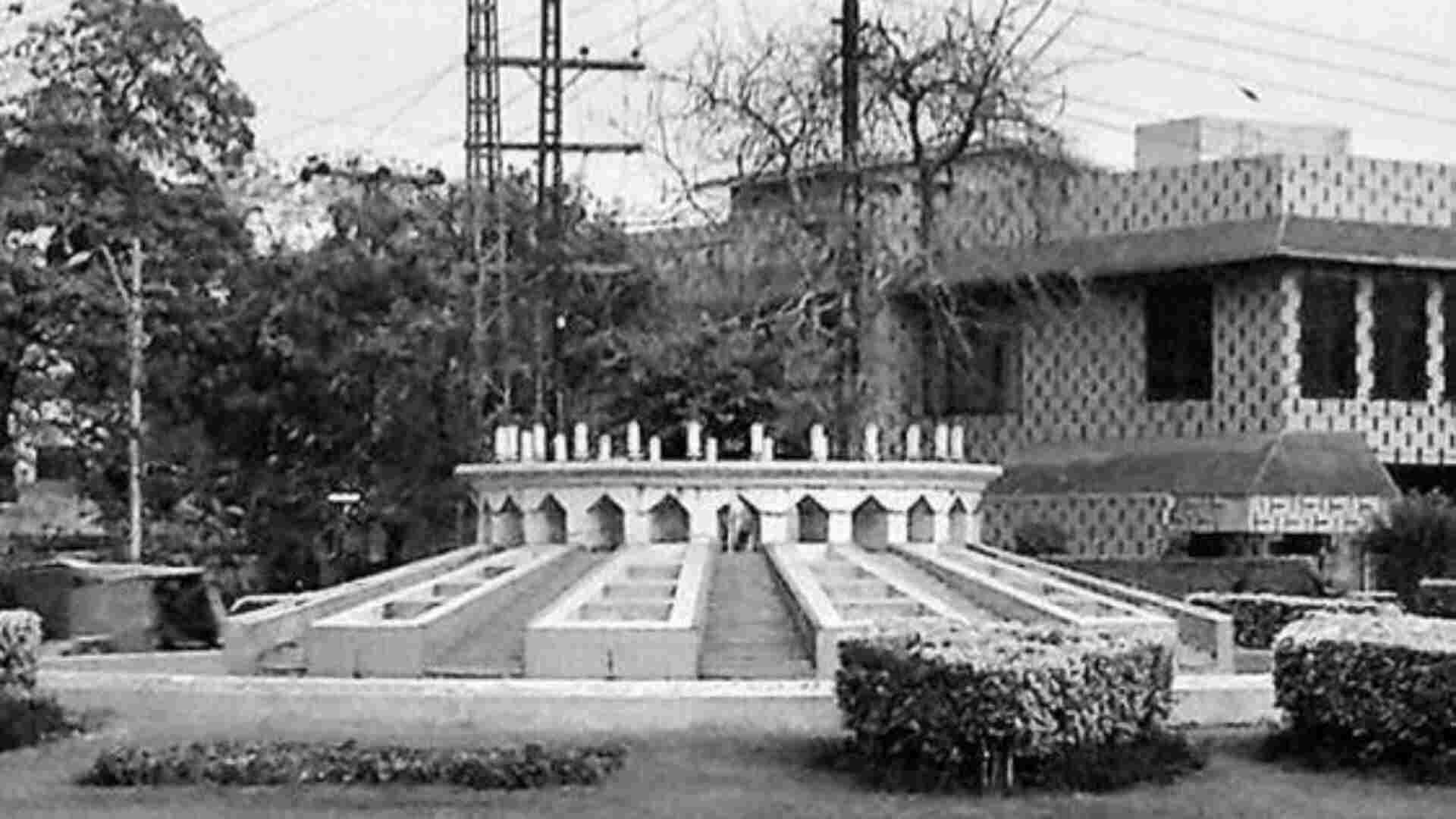The decision by Pakistan to cancel plans for renaming Shadman Chowk in Lahore after Bhagat Singh, and the labeling of him as a “terrorist” by a retired military official, has stirred both controversy and debate within Pakistan and beyond.
The cancellation and the comments made about Bhagat Singh—an iconic freedom fighter and revolutionary—have sparked discussions about his legacy, Pakistan’s national identity, and the perspectives surrounding historical figures.
Bhagat Singh: A Revolutionary or “Terrorist”?
Bhagat Singh is widely celebrated in India and parts of the subcontinent as a revolutionary and martyr who dedicated his life to resisting British rule. His execution, alongside fellow revolutionaries Sukhdev Thapar and Shivaram Rajguru in 1931, was a turning point in India’s freedom struggle.
Singh’s advocacy for independence and his dedication to the cause of justice have made him a legendary figure across generations. However, in Pakistan, perspectives on Bhagat Singh have been more complex and, at times, divisive.
The recent controversy arose when Lahore’s Metropolitan Corporation decided to cancel its plan to rename Shadman Chowk after Bhagat Singh. This decision was reportedly influenced by Commodore (retd.) Tariq Majeed, who was part of the official committee appointed to oversee the renaming process.
Read : “I’m Donald Trump’s Real Daughter,” Claims Pakistani Girl: Watch
Majeed argued that Singh should not be honored due to his actions, labeling him as a “criminal” who killed a British police officer and claiming he was driven by ideologies incompatible with Pakistan’s culture and religion. According to Majeed, Singh’s actions make him a “terrorist” by today’s standards, suggesting that placing a statue of Singh or renaming a location in his honor would go against Islamic values and Pakistani identity.
The Lahore High Court Petition and Public Response
The decision not to honor Bhagat Singh at Shadman Chowk was met with opposition, particularly from the Bhagat Singh Memorial Foundation in Pakistan, which had been actively working towards memorializing Singh. The foundation’s chairman, Imtiaz Rasheed Qureshi, filed a contempt petition at the Lahore High Court in response to the decision.
In his petition, Qureshi questioned the Metropolitan Corporation’s grounds for rejecting the renaming proposal, labeling the accusations against Singh as baseless and deeply offensive. Qureshi argued that Singh was a martyr and revolutionary, not a terrorist, and that his legacy deserves recognition.
Qureshi also criticized the use of Singh’s religious and ideological beliefs as grounds for rejection, stating that Bhagat Singh’s contributions were beyond religion, aimed at achieving independence from colonial rule. He contended that Singh’s ideas and actions aligned with justice and bravery rather than terrorism, and any attempt to suppress or tarnish his legacy should be challenged.

In response, Assistant Advocate General Asghar Leghari presented a written statement to the Lahore High Court supporting the decision to halt the renaming plan. The statement emphasized concerns raised by Majeed and added that the Bhagat Singh Foundation’s efforts were perceived as “hostile” to Islamic values and Pakistani culture.
Majeed’s suggestion to ban the foundation due to its alleged “anti-Islamic” stance further heightened the controversy. The situation illustrates the challenges surrounding historical figures whose actions and legacies transcend national boundaries but remain subject to reinterpretation based on current political and cultural perspectives.
Historical Figures, National Identity, and Pakistan’s Cultural Landscape
The debate around Bhagat Singh’s legacy also raises questions about national identity, historical interpretation, and the criteria for honoring public figures in Pakistan. While Singh is celebrated as a hero in India, Pakistan’s historical narratives and national symbols have primarily focused on figures from the Islamic and Pakistani nationalist context, particularly those connected to the country’s own formation and ideological foundations.
The conflicting viewpoints about Bhagat Singh also reflect broader tensions in how history is remembered and whose stories are given precedence. For some in Pakistan, Bhagat Singh remains a complex figure; he fought against the same colonial rule that eventually led to the creation of both India and Pakistan.
However, his identity as a Sikh revolutionary and his secular, socialist beliefs make his place within Pakistan’s historical narrative ambiguous and, at times, contentious.

The reluctance to honor Singh in Pakistan also highlights the sensitivities around religious and ideological differences. Some officials argue that naming a public space after Singh and erecting a statue would clash with Islamic teachings that discourage idolization and statues.
The allegations of Bhagat Singh being an atheist have added to the complexities of his legacy in Pakistan, where religious identity and nationalism are closely intertwined. For supporters of Singh, however, these arguments ignore his broader contributions as a freedom fighter, independent of religion, and downplay his commitment to a larger cause of justice.
Imtiaz Rasheed Qureshi and supporters of the Bhagat Singh Memorial Foundation argue that this perspective is overly restrictive and fails to acknowledge the shared history and struggles of the Indian subcontinent. They believe that figures like Bhagat Singh should be celebrated for their courage and ideals, which transcend religious and national divides.
The controversy raises questions about inclusivity and whether Pakistan’s cultural and historical narratives can embrace figures whose identities and beliefs may not align fully with the current state ideology.


На сайте представлена информация о программном обеспечении для видеонаблюдения, позволяющем анализировать посещаемость объектов. Программа для видеонаблюдения предоставляет инструменты для сбора и анализа данных о количестве посетителей, их перемещении по объекту и времени пребывания. VMS обеспечивает надежную запись с камер видеонаблюдения, а функции распознавания лиц помогают отслеживать лояльность клиентов. Полученную информацию можно использовать для оптимизации бизнес-процессов и повышения эффективности маркетинговых кампаний.
На данном сайте у вас есть возможность приобрести онлайн телефонные номера разных операторов. Они подходят для подтверждения аккаунтов в разных сервисах и приложениях.
В ассортименте представлены как постоянные, так и одноразовые номера, которые можно использовать для получения сообщений. Это удобное решение если вам не хочет указывать основной номер в интернете.
купить номер для тг
Процесс покупки максимально простой: определяетесь с необходимый номер, вносите оплату, и он будет доступен. Оцените сервис уже сегодня!
На этом сайте у вас есть возможность приобрести виртуальные телефонные номера различных операторов. Эти номера могут использоваться для подтверждения аккаунтов в различных сервисах и приложениях.
В ассортименте представлены как долговременные, так и временные номера, которые можно использовать чтобы принять SMS. Это удобное решение для тех, кто не хочет использовать личный номер в интернете.
арендовать номер телефона
Процесс покупки максимально удобный: выбираете подходящий номер, вносите оплату, и он сразу будет готов к использованию. Попробуйте услугу прямо сейчас!
Одеяние не только защищает от холода и зноя, но и подчеркивает стиль. Люди одеваются, чтобы ощущать комфорт. Многим важно, как их воспринимают, поэтому внешний вид является частью имиджа. Помимо этого, правильно подобранный наряд помогает в нужной обстановке. Так, деловой костюм создает профессиональный вид, а свободная одежда нужны для неформальных встреч. Как видно, стиль играет роль в разных аспектах жизни.
https://infobidz.fun/read-blog/17605
На этом сайте вы найдете учреждение ментального здоровья, которая предоставляет профессиональную помощь для людей, страдающих от депрессии и других психических расстройств. Мы предлагаем индивидуальный подход для восстановления психического здоровья. Врачи нашего центра готовы помочь вам решить психологические барьеры и вернуться к гармонии. Квалификация наших врачей подтверждена множеством положительных рекомендаций. Обратитесь с нами уже сегодня, чтобы начать путь к оздоровлению.
http://jaxsoncohen.com/__media__/js/netsoltrademark.php?d=empathycenter.ru%2Fpreparations%2Fo%2Folanzapin%2F
Предоставляем транспортные услуги с автобусами и микроавтобусами большим организациям, компаний среднего и малого сегмента, а также частным лицам.
Газель на час в Челябинске
Организуем приятную и безопасную перевозку для коллективов, предлагая заказы на свадебные мероприятия, корпоративы, экскурсии и любые события в регионе Челябинска.
Swiss watches have long been a gold standard in horology. Meticulously designed by renowned watchmakers, they perfectly unite tradition with cutting-edge engineering.
All elements reflect unmatched attention to detail, from hand-assembled movements to premium elements.
Owning a Swiss watch is not just about telling time. It signifies timeless elegance and uncompromising quality.
Whether you prefer a minimalist aesthetic, Swiss watches offer remarkable precision that lasts for generations.
https://queenkaymusic.com/forums/topic/%d0%bd%d0%b8%d0%ba%d1%82%d0%be%d1%84%d0%be%d0%b1%d0%b8%d1%8f/page/22/#post-190599
Buying medicine on the internet can be way simpler than visiting a local drugstore.
You don’t have to deal with crowds or stress over limited availability.
Internet drugstores give you the option to get your medications with just a few clicks.
Many platforms have discounts unlike traditional drugstores.
http://forum.ai-fae.org/viewtopic.php?t=94998
Additionally, you can check various options quickly.
Reliable shipping adds to the ease.
What do you think about ordering from e-pharmacies?
Eye health requires regular check-ups and awareness of common conditions. Understanding issues like cataracts, glaucoma, or macular degeneration is important. Learning about protective measures like wearing sunglasses benefits long-term vision. Familiarity with medical preparations like eye drops for various conditions is relevant. Knowing when to seek professional eye care is crucial. Access to reliable information promotes good vision habits. The iMedix podcast covers sensory health, including vision care. It serves as an online health information podcast for holistic well-being. Listen to the iMedix online health podcast for eye health tips. iMedix provides trusted health advice for preserving sight.
На нашем портале вам предоставляется возможность играть в широким ассортиментом игровых слотов.
Игровые автоматы характеризуются живой визуализацией и интерактивным игровым процессом.
Каждый слот предлагает индивидуальные бонусные функции, повышающие вероятность победы.
1xbet казино официальный сайт
Слоты созданы для игроков всех уровней.
Вы можете играть бесплатно, а затем перейти к игре на реальные деньги.
Испытайте удачу и насладитесь неповторимой атмосферой игровых автоматов.
На нашем портале вам предоставляется возможность испытать широким ассортиментом игровых автоматов.
Эти слоты славятся яркой графикой и интерактивным игровым процессом.
Каждый слот предлагает уникальные бонусные раунды, увеличивающие шансы на выигрыш.
1xbet казино официальный сайт
Игра в слоты подходит любителей азартных игр всех мастей.
Есть возможность воспользоваться демо-режимом, и потом испытать азарт игры на реальные ставки.
Проверьте свою удачу и получите удовольствие от яркого мира слотов.
This online store offers a wide selection of decorative timepieces for any space.
You can check out contemporary and classic styles to match your interior.
Each piece is carefully selected for its design quality and reliable performance.
Whether you’re decorating a cozy bedroom, there’s always a fitting clock waiting for you.
best mahogany finish desk clocks
Our catalog is regularly updated with fresh designs.
We focus on customer satisfaction, so your order is always in good care.
Start your journey to better decor with just a few clicks.